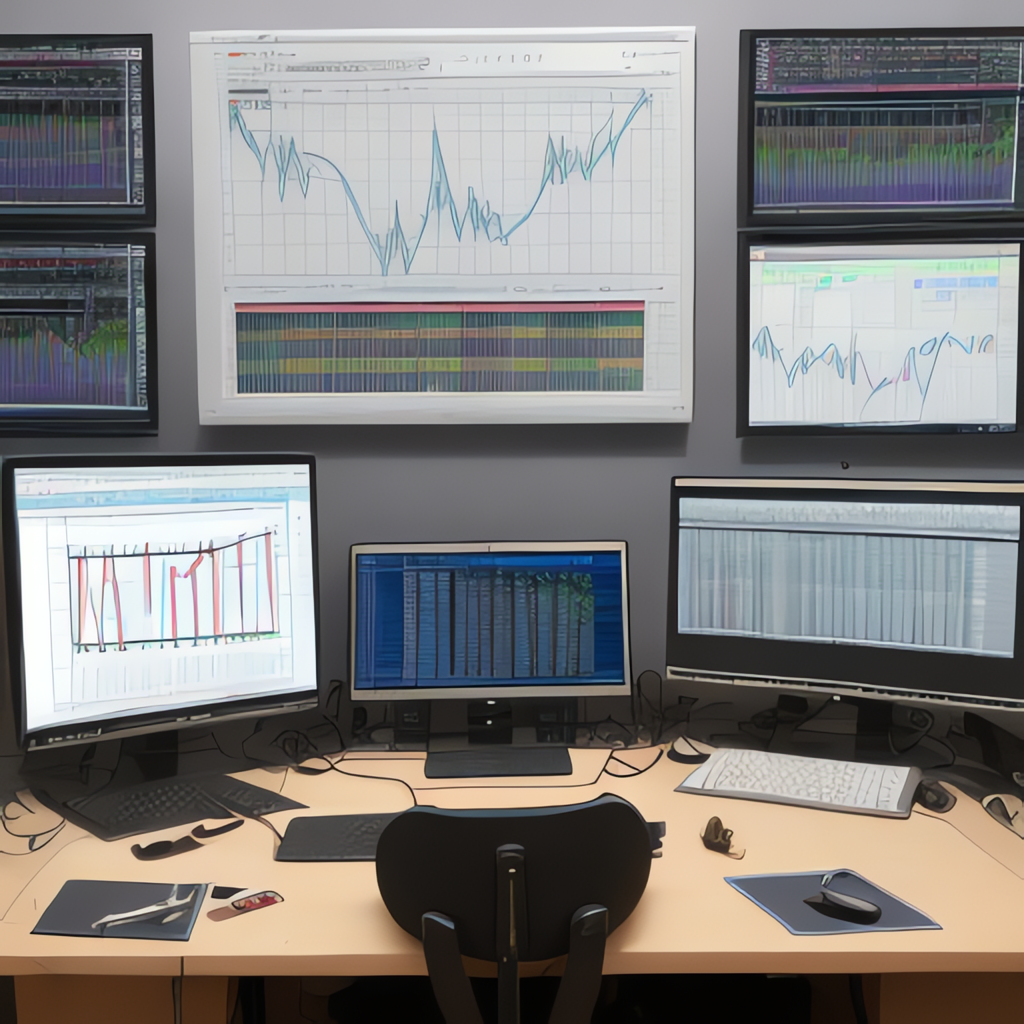Understanding the Power of Visual Data Exploration: A Comprehensive Guide to Various Chart Types
In the realm of data analysis, visual data exploration has never been more crucial. With a wealth of information at our fingertips, the challenge often lies in deciphering and interpreting the vast number of data points. This guide serves as your comprehensive walkthrough into the world of various chart types—essential tools for turning data into understandable, meaningful insights.
Chart Mastery Series: Unlocking the Secrets of Bar Charts
The humble bar chart holds a unique place in data visualization—specifically useful for comparing quantities across different categories. In this guide, you’ll learn the nuances of bar charts, when to use them, and the best practices for creating effective bar charts that communicate your message clearly and succinctly.
Navigating Time Series Data: The Art of Line Charts
Line charts are the navigators of time series data, expertly guiding us through trends and shifts across consecutive points in time. Whether it’s economic forecasts, stock market trends, or performance metrics, line charts are invaluable for spotting patterns and making informed decisions.
Area Charts vs Stacked Area Charts: Which One to Choose for Your Data?
Area charts and stacked area charts are often misunderstood equivalents. This article unpacks their differences, highlighting their unique strengths in showing change over time, while distinguishing between closely related data sets to provide clear, comparative insights.
Column Charts: Versatile Tools for Comparison and Data Summarization
From simple comparisons to comprehensive summarization, column charts are the quintessential go-to for visual data exploration. Discover how to leverage column charts to effectively communicate data values, both individually and in relation to one another.
Exploring the Charm of Polar Bar Charts: Insights from Circular Data
Stepping away from the Cartesian plane, polar bar charts offer a unique perspective on angular data, effectively visualizing radial values and angular attributes. Ideal for data that varies cyclically, these charts provide a visual journey through data points in a non-conventional but immensely insightful manner.
Pie Charts vs Circular Pie Charts: Choosing the RightSlice of Visualization
Pie charts and their circular counterparts, often confused but distinct, offer a visual breakdown of a whole into its constituent parts. This article delves into when to opt for traditional pie charts and where circle diagrams might be the better choice, exploring the nuances of effectively communicating part-to-whole relationships.
Rose Charts: A Visual Journey Through Angular Data
Rose charts, a cousin of polar area charts, map angular attributes onto a circular scale, offering a unique approach to visualizing data measured in angles. Understand how to navigate through the beauty and functionality of these designs, enhancing data comprehension through angular insights.
Radar Charts: A Comprehensive Guide to Exploring Multivariable Data
Radar charts are particularly powerful in revealing complex relationships between several variables. This guide will lead you through best practices for creating and interpreting radar charts, emphasizing how to design them meaningfully to illuminate multivariable relationships effectively.
Mastering Beef Distribution Charts: Insights from Agricultural Data Visualization
Specific to agriculture, the beef distribution chart offers a unique perspective on the intricacies of meat distribution across various stages of production. This article showcases the value of these charts in understanding how beef moves through the supply chain.
Organ Chart Basics: Visual Communication for Hierarchical Structures
Organ charts are fundamental to understanding the structure and hierarchy of organizations. Learn how to design and interpret organ charts, uncovering insights into the operational structure of businesses and entities.
The Anatomy of Connection Maps: Charting Relationships in Complex Data
From social networks to technological clusters, connection maps provide a visual synthesis of complex data sets by highlighting relationships between data entities. Dive into the complexities of connection maps and how to apply them effectively in various fields.
Exploding the Sun: A Deep Dive into Sunburst Charts
Sunburst charts, or sun charts, offer a layered approach to visualizing hierarchical data, making it easier to understand the relationships between parts and the whole. This article will demonstrate the power of sunburst charts in revealing intricate hierarchical structures.
Understanding Sankey Flow Diagrams: Visualizing Energy and Material Flows
Sankey diagrams, with their distinct arrow-like flow patterns, are masterful tools for visualizing flows, often applied in energy and material cycle analyses. Learn how to leverage these diagrams for a comprehensive understanding of data flows.
From Words to Pictures: Crafting Meaningful Information with Word Clouds
Word clouds are a playful yet powerful way of visualizing and analyzing textual data. They provide a visual summary of textual content or analysis of word frequency in a data set, serving as a starting point for more detailed insights.
In conclusion, this guide has been crafted to empower you with the knowledge necessary to effectively navigate the realm of visual data exploration. Each of these various chart types has its unique merits, tools in our data analyst’s arsenal, and best suited to reveal different facets of data. Understanding the power and nuances of each chart type allows us to communicate data insights more effectively, making informed decisions that propel us forward in a data-driven world.
